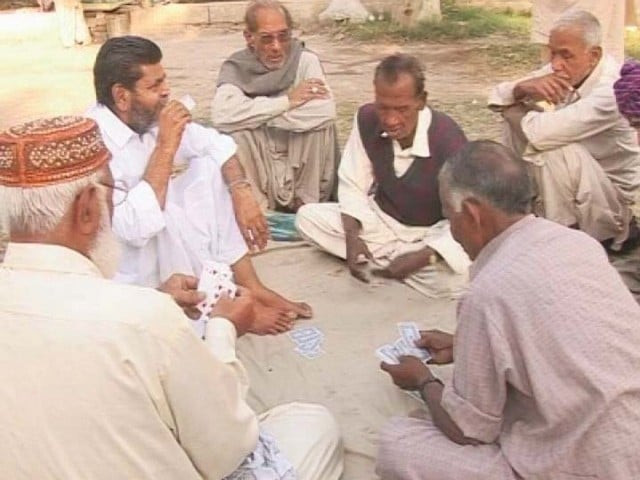Lahore / Karachi:
After having spent almost all their lives to fulfill obligations, citizens crossing sixties are left aging in the shadows, their families and the state treating them as a burden.
In Pakistan, the elderly population, which amounted to 16.5 million in 2023, is expected to reach 36.6 million by 2050, which makes him a Pakistanis, a senior. Despite the country’s elderly population, Pakistan still offers limited prospects for a dignified, independent and healthy life to its elderly, the majority of whom are without essential services or social security.
One of these elderly people was Muhammad Sharif, 80, a government employee retired living in the Garhi Shahu region of Lahore. Once financially stable, he now has trouble surviving. “I have invested all my retirement funds in my sons’ companies. I have three sons and two daughters, all married. My wife died, and now I am completely dependent on my children, who consider me a burden,” said Srustly Sharif.
Sharif has tried to admit several times in old age houses, but has been refused because of its age and diseases. Suffering from diabetes, high blood pressure and extreme physical weakness, it is based on support to move. “I now accepted that I will spend the rest of my days on this charpai (bed)”, regretted Sharif, whose history reflects the daily difficulties facing countless elderly across Pakistan.
Down South in Karachi, Aslam Shah, a 70 -year -old Kharadar resident revealed that he was suffering from multiple health problems and had to be held for hours in a long queue at Jinnah hospital for a simple assessment. “I have to wait two or three hours before seeing a doctor, two more hours to make straps and two to three overtime to have reports examined by the doctor. There are no seats or water arrangement for the elderly in public hospitals,” said Shah.
Professor Asghar Zaidi, an expert in public policy at the University of Management and Technology (UMT) Lahore, which is also affiliated with the Institute of aging of the population of Oxford, underlined the need for immediate and impactful political reforms in accordance with the concept of WHO of “healthy aging”.
“Geriatric health care should be made of a national priority by forming doctors in the care for the elderly and by establishing geriatric units dedicated in all large hospitals. And develop a national system for care for the elderly at home and the training of caregivers.
On the other hand, Fatima Tahir, a clinical psychologist, implored that in addition to physical illnesses, the elderly were also faced with psychological distress because of loneliness and negligence. “It is the stadium of life where comfort, dignity and social support are crucial, but unfortunately, they lack our society,” said Tahir.
In Punjab, despite the approval of the 2023 seniors law by the cabinet committee, the bill remains stuck in the legislative pipeline, similarly in Sindh, in 2016, the Sindh’s elderly law was adopted, offering free treatment in government hospitals and a 25% presentation in private hospitals. However, for a province with a population aged more than 55.7 million, the elderly expect social protection facilities to date.
Dr. Murtaza Khuhro, local lawyer and social protection activist, confirmed that the law concerning the elderly needed advertising, most people did not know. “About 5% of the province’s population is 60 years old or well-being and their well-being is the responsibility of the government. An advertising campaign should be launched through television and newspapers to raise awareness, it should last at least two years,” said Dr. Khuhro.
Farida Yameen, head of Sindh Senior Citizens Council, revealed that the process of recording people over the age of 60 was still in progress, and that no senior card had been issued to anyone so far. According to the provincial minister for social protection Mir Tariq Talpur, 25,000 to 30,000 cards have been prepared and will be distributed soon.
Meanwhile, officials from the Social Punjab Welfare and the Department of Baitul Mal said that old age houses had been created in six cities, including Lahore, with the ability to accommodate 50 elderly people per center. The facilities also offer free access to public transport and leisure for people over 60 years of age. However, realities on the ground tell a different story.
Various compared to the declarations of state officials, Shehzad Khaskheli, Director of the Foundation for Aging and Inclusive Development (FAID), stressed that although laws are in place in the provinces, the implementation has remained minimal.




